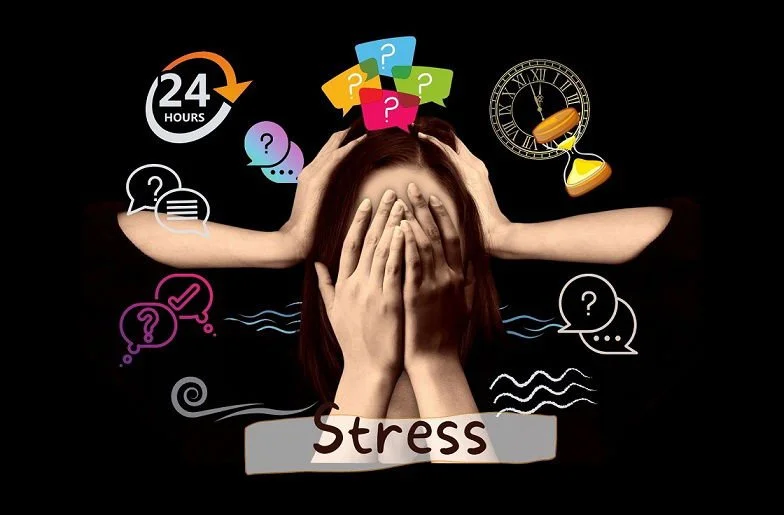The Silent Epidemic of Chronic Stress
Stress isn’t just a reaction—it’s become a chronic epidemic silently harming our health. Every day, prolonged stress overloads our minds and bodies. And far too often, we barely notice the damage creeping in.
What Makes Stress “Chronic”?
First, chronic stress isn’t about the occasional deadline or traffic jam. It’s the ongoing pressure from long-term factors, like work, finances, caregiving, or relationship tensions. Over time, the body stays stuck in “fight-or-flight” mode.
Then, this constant activation floods the body with stress hormones like cortisol and adrenaline. That response helps us short term. But prolonged exposure “wears down” the body’s systems—a process researchers call allostatic load.
The Body’s High Price
Meanwhile, that allostatic load shows up everywhere:
Cardiovascular strain: Chronic stress raises blood pressure and pulse. That leads to artery damage and a higher risk of heart attacks and stroke.
Immune suppression: Cortisol blocks key immune chemicals, weakening defenses and increasing susceptibility to illness.
Metabolic chaos: Stress drives cortisol-linked cravings and belly fat gain. That increases the risk of obesity, type 2 diabetes, and metabolic syndrome.
Digestive trouble: Stress alters gut function, leading to IBS, indigestion, inflammation, and even “leaky gut”.
Brain shrinkage: Sustained cortisol can shrink key brain regions like the hippocampus, impairing memory, learning, and decision-making.
Mental Health Toll
Furthermore, chronic stress is a top contributor to anxiety and depression. It disrupts sleep, deepens sadness, spikes irritability, and drains focus.
Stress is now linked to mental disorders and cognitive decline, even contributing to a higher risk of conditions like Alzheimer’s.
Voices from the Real World
“Increased cortisol levels wreak havoc on digestion, immunity, and mental clarity.”
“Your gut, often called your ‘second brain,’ plays a huge role in how you feel, think, and perform.”
One Redditor also pointed out:
“Stress doesn’t just stay in your head—it affects your entire body.”
Those firsthand insights echo research: the mind-gut connection is real.
Why It’s a Public Health Emergency
Next, consider this: stress contributes to six leading causes of death, including heart disease, cancer, stroke, and suicide.
Also, stress-related burnout is escalating. Over 75% of workers report burnout symptoms, often tied to job stress.
Moreover, social stress—like poverty, discrimination, and unstable housing—further supercharges health risks in vulnerable communities.
Stress 360°: Mind, Body & Behavior
Meanwhile, chronic stress triggers unhealthy behaviors:
Emotional eating, poor nutrition, and inactivity worsen physical health.
Sleep disruptions that intensify stress in a vicious circle.
Social withdrawal and mood swings that fracture relationships and support networks.
Strategies to Break the Cycle
Fortunately, we can fight back.
Mindful Breathing
For example, box breathing (4‑count inhale, hold, exhale) or deep diaphragmatic breaths can trigger relaxation. Just 5–10 minutes daily lowers stress hormones and improves heart rate variability.
Moving More
Also, consistent exercise—from walking to yoga—reduces cortisol, boosts endorphins, supports sleep, and strengthens mood.
Meditation
Meanwhile, mindfulness practices shrink stress-reactive brain areas. They lower inflammation, improve immune response, and bolster emotional control.
Quality Sleep
Moreover, steady wake-up and bedtime routines, along with device curfews, promote sleep. That helps clear stress chemicals and repair the brain.
Social Connection
Also, strong relationships buffer stress. Daily social interactions—friends, groups, family—lift mood and reduce cortisol.
When to Seek Help
Finally, chronic stress isn’t just “part of life.” If anxiety, exhaustion, sleep loss, or mood disruptions persist, it’s time to act.
Start with daily habits—breathwork, movement, mindfulness, sleep.
Join programs or groups that teach evidence-based stress management.
Talk to a professional when stress overwhelms or daily life is affected.
Final Take
Chronic stress is indeed a silent but serious epidemic—one affecting every system in our bodies. Yet, it’s manageable.
By tuning into our bodies, adopting simple practices, and fostering community, we can reclaim our health. Today’s small shifts become tomorrow’s resilience.
